Relations between China and Australia have taken a twist for the worse when Beijing unexpectedly announced that the key economic dialogue with Canberra has been “suspended indefinitely”. The decision, made by the National Development and Reform Commission (NDRC), China’s top economic planner, saw the Australian dollar weakened against the U.S. dollar.
The last time NDRC made its move against Australia was when it granted approval to 10 major power plants to import coal without clearance restrictions – except for Australia. That decision, made in December 2020, essentially formalized import bans targeting Australia’s A$14 billion coal industry, leaving hundreds of millions of tonnes of Australian coal stranded off the coast of China.
Hence, the latest move could be seen as an “official breakdown” in communications between both governments already locked in diplomatic hostility. Interestingly, the same strategic economic dialogue between both nations was last held in Beijing in 2017, during a period when the China-Australia Free Trade Agreement (ChAFTA) drove trade values to more than A$155 billion.
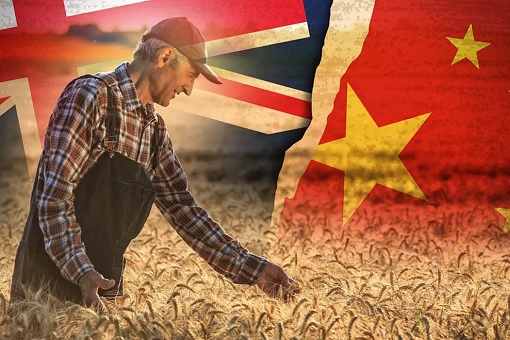
First launched in 2014, the China-Australia Strategic Economic Dialogue is an important mechanism under China-Australia Annual Prime Ministerial Meeting to strengthen economic and bilateral relations. Back then, Australian Prime Minister Tony Abbott and Chinese President Xi Jinping agreed to describe the relationship as a “comprehensive strategic partnership”.
A statement from the National Development and Reform Commission (NDRC) offers the reasons for the suspension – “Recently, some Australian Commonwealth Government officials launched a series of measures to disrupt the normal exchanges and cooperation between China and Australia out of Cold War mindset and ideological discrimination.”
Clearly, the decision to sever any future trade cooperation with Canberra was a retaliation against Morrison government’s decision to cancel Victoria’s Belt and Road Initiative last month. Unable to retaliate against Beijing’s boycott or sanction against Australian products, Prime Minister Scott Morrison is also considering the scrapping of a Chinese company’s 99-year-lease on the Port of Darwin.
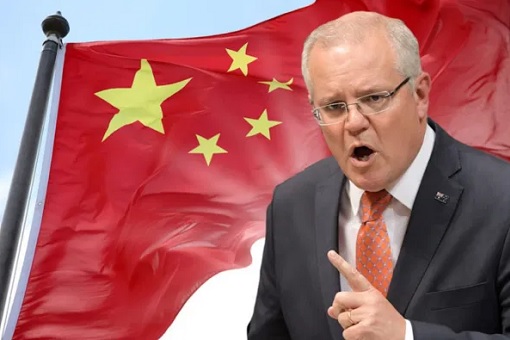
Victoria – Australia’s second largest and wealthiest state – signed an MOU (memorandum of understanding) on the Belt and Road Initiative (BRI) with the Chinese government in October 2018, the only government in Australia to sign up for Chinese President Xi Jinping’s signature global infrastructure initiative. It was supposed to build new trade corridors between Europe and Asia.
Even though Canberra claimed the decision was not directed at any particular country, Beijing was not impressed and called the cancellation a provocative move. Australia deliberately passed a law last December that give the foreign minister the power to stop new and previously signed agreements between overseas governments and Australia’s eight states and territories.
To make matters worse, PM Morrison ordered the Department of Defence to review the 99-year lease that China’s Landbridge Group took over the Port of Darwin in 2015. Under the pretext of national security, Canberra is toying with the idea of forcing the Chinese company to surrender the lease, and revoke the A$506 million agreement, despite the fact it is just a commercial port, not a military harbour.
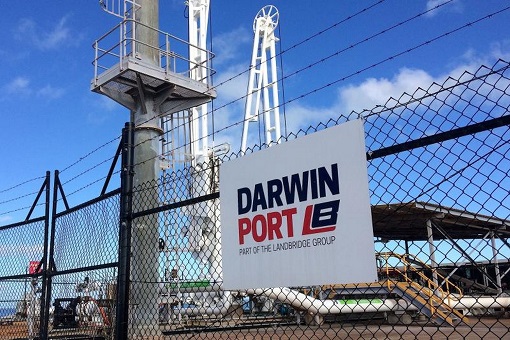
Chinese companies own port facilities around the world for commerce and trade reasons, including the port of Long Beach near Los Angeles, Athens’s ancient port of Piraeus, and Europe’s biggest harbor at Rotterdam. Poking Beijing’s investment in the Port of Darwin is obviously a schoolyard fight, but PM Morrison’s intention was to frustrate China in any way he can.
China was also offended after Australian Defence Minister Peter Dutton suggested the possibility of a military conflict between China and Taiwan, which has provoked Taiwan’s Foreign Minister Joseph Wu to invite Australia to help Taiwan defend itself against mainland China. The newly appointed Australian defence minister was seen as interfering in the internal affairs of China.
Some commentators argued that Beijing’s latest move is largely symbolic with little impact on Australian trade. That is an absolutely foolish thinking simply because business, traders and consumers in China take their cues from Beijing. Based on the Australian dollar’s reaction, the economic impact over time could be serious.
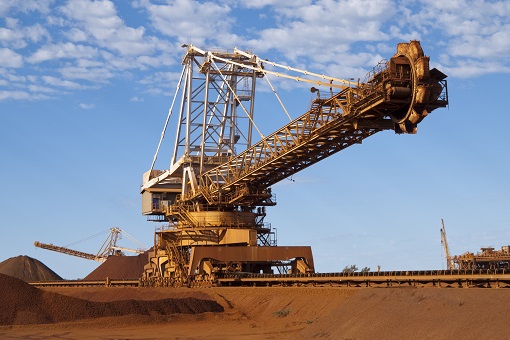
Although the Chinese have already boycotted some Australian products, some took comfort that China still buys iron ore from the land Down Under worth a staggering A$115 billion in the 12 months ended March. While Beijing has limited option now, it is patiently preparing for a boycott of Aussie iron ore once alternative supplier Brazil came back on line next year.
According to the Australian National University’s Chinese Investment in Australia Database, Chinese investment in the country plunged 62% in 2020, down to just A$775 million – the lowest in 6 years. China is Australia’s biggest trading partner – about one-third or 30% of the country’s total exports goes to the Chinese market, contributing A$135 billion annually and providing thousands of jobs.
Everything started when the Australian government chose to support Trump, who accused China’s incompetence in controlling the Covid-19 from spreading, despite tons of evidence that the U.S. president sat on his hands for months. Referring to the Covid-19 as the “China Virus” or a “Chinese Plague”, Trump’s political rhetoric included claims that the virus was “sent by China”.
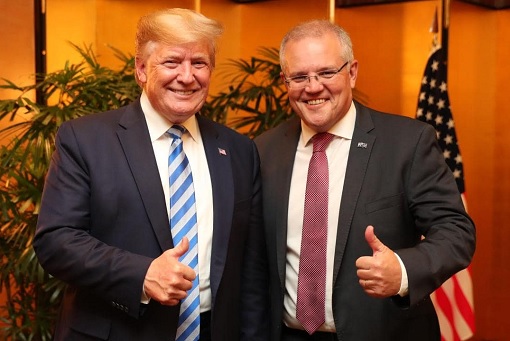
It was a huge mistake when Prime Minister Scott Morrison’s campaigned in April, 2020 – urging top allies France, Germany and New Zealand to pressure China to give the foreign countries the “weapons inspector-like” powers to investigate the outbreaks. Beijing, of course, was not impressed that Canberra used the Coronavirus pandemic to engage political manipulation.
China had mocked Australia of parroting U.S. President Donald Trump in its call for an inquiry to determine the origins of Covid-19, despite Morrison’s own admission that he had no evidence to suggest the disease originated in a laboratory in the Chinese city of Wuhan. Trump was the only leader who said he was convinced the virus may have originated in the Chinese virology lab.
Last April, Chinese Ambassador to Australia Cheng Jingye warned the Morrison government that its dangerous manoeuvre would spark a consumer boycott against Australian goods. Beijing made good on its promise, slapping an 80.5% tariff on all Australian barley grain in May after banning imports from four major Australian beef suppliers, allegedly over labelling issues.
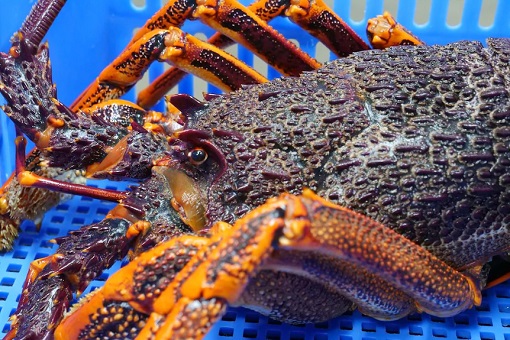
By November, the situation was so bad that Chinese import agents warned their clients they had been informed that no Australian shipments of wheat, barley, sugar, red wine, timber, wool, lobster and copper ores would be cleared. The Aussie’s tourism and education sectors have also been targeted when Chinese tourists and students were advised to stay away from the country.
In March this year, China’s Ministry of Commerce officially announced that import duties between 116.2% and 218.4% will be imposed on Australian wines. But last month, the damage was already obvious. Australian wine exports to China crashed to just US$9 million in the December quarter (ended March 31) – a huge 96% drop.
Now, it is fear that China could go nuclear by scrapping the China-Australia Free Trade Agreement (ChAFTA) altogether, the free trade agreement that has greatly benefitted Australia. It was already bad when senior Australian ministers said their Chinese counterparts would not return calls. James Laurenceson, Director of the Australia-China Relations Institute, said Beijing’s latest move appears to be extending that diplomatic freeze.
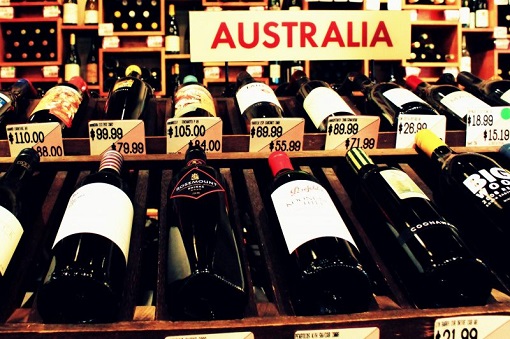
Other Articles That May Interest You …
- Australia’s Wine Export To China Crash 96% – Only $9 Million Sold As Tariffs Wipe Out Aussie’s Biggest Export Market
- Australia’s Beef Export Worth A$3 Billion To China May Not Recover – Permanently & Completely
- Australia’s $1 Billion Wine Industry In Trouble – China Officially Slaps 218.4% Import Duties For 5 Years Effective Sunday
- Australia’s Treasury Wine Forced To Sell Brands & Assets – Profit Suffers 43% Drop After China’s Tariffs Punishment
- China Will Import Coal From Any Country, Except Australia – PM Morrison Upset Over Impact On The A$14 Billion Industry
- Australia Hopes RCEP Will Fix Problems With China – But It Gets Worse As Beijing Reveals Three Issues With Canberra
- Australia’s Economy Being Hit Again – China Bans Wheat, Lobster, Barley, Sugar, Wine, Timber, Coal, Copper
- China Punish Australia Again – Recession-Hit Aussie Saw Its A$2 Billion Cotton Industry Targeted
- Australia Upset! – China Now Uses “Asian Discrimination” To Target Aussie’s A$38 Billion Education Industry
- Coronavirus Inquiry Backfired On Aussie – China Slaps Tariffs, Warns It Has The Power To Hurt Australia Economy

|
|
May 6th, 2021 by financetwitter
|


|

|

|

|

|

|




























Comments
Add your comment now.
Leave a Reply